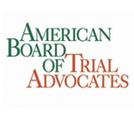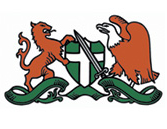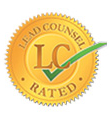Before filing a car insurance claim, you must inform your insurance provider about your accident. This can be done by calling the phone number on your insurance card or using the insurer's website or mobile app. Even if you were not at fault for the accident, you should notify your insurer first. If you believe the other party was responsible for the accident, you could file a claim with their insurance company. Speaking with an attorney before filing a claim is often a good idea, as insurance adjusters do not always have your best interests in mind.
Who to Call After You are Involved in a Car Accident
If you have been involved in a car accident, there are several steps you should take to ensure your safety and protect your legal rights. These steps include:
-
Check for injuries — If you or anyone else involved in the accident has been injured, call 911 or your local emergency number to request medical assistance.
-
Call the police — Even if the accident is minor and there are no visible injuries, it is a good idea to call the police to report the accident. The police will create an accident report, which can be helpful if you need to file a claim with your insurance company or decide to pursue legal action.
-
Exchange information — Exchange information with the other driver, including your name, contact information, insurance information, and the make and model of your vehicle.
-
Take pictures — If it is safe, take photos of the accident scene, including the damage to your vehicle and the surrounding area.
-
Contact your insurance company — If you have been involved in an accident, you should contact your insurance company as soon as possible to report the accident and initiate a claim.
What if the Car Accident Was My Fault?
If you were at fault for a car accident, taking responsibility for your actions and any damages that could have been caused is important. Depending on the severity of the accident and the laws in your area, you are required to report the accident to the authorities and/or your insurance company. You could also be required to pay for any damages or injuries caused by the car accident.
However, taking responsibility does not mean admitting fault. If you admit fault, your insurance provider will use your admission of guilt to deny your claim.
If injuries are involved, seek medical attention and follow any recommended treatment. Cooperate and remain honest with the authorities and any insurance companies involved. You could face criminal charges if the accident was severe and resulted in significant damages or injuries.
Notifying the DMV of Your Involvement in a Car Accident?
You are legally required to report a car accident to the Department of Motor Vehicles (DMV) if it results in the following:
-
Injury or death
-
Damage to the property of any one person (including yourself) above $1,000
If the accident meets either of these criteria, you must file a written report (Form SR-1) with the DMV within ten days of the accident. You can obtain this form from your local DMV office or the DMV website.
If the accident did not result in injury or death and the damages were less than $1,000, you are not required to report the accident to the DMV. However, it is still a good idea to exchange information with the other driver(s) involved and to report the accident to your insurance company.
Length of Time Before You Can Recover Damages for Car Accident Injuries
The time you have to file a lawsuit and recover damages for car accident injuries, also known as the Statute of limitations, is state specific. In California, the statute of limitations for personal injury claims arising from a car accident is generally two years from the date of the accident. This means you have two years from the accident date to file a lawsuit seeking damages for your injuries. You could be barred from recovering damages for your injuries if you do not file a lawsuit within this time frame.
Some exceptions exist to this general rule. For example, the deadline to file a lawsuit could be shorter if the accident involved a government vehicle or employee.
The longer you wait, the harder it could be to gather evidence and build a strong case.
What If I Do Not Have Insurance?
If you do not have insurance and are involved in a car accident, you need to take specific steps to protect yourself and your financial interests.
If the accident was your fault, you could be responsible for paying for any damages or injuries caused by the car accident. This can include damages to the other driver's vehicle and any medical expenses for injuries sustained in the accident. If the damages or injuries are significant, this could be a financial burden for you.
If the accident was not your fault, you could still recover damages for your injuries and damages through the other driver's insurance policy. However, this will depend on the accident's specifics and the other driver's policy coverage.
If you cannot recover damages through the other driver's insurance policy, you could have to pay for your damages out of pocket. This can be a financial burden, especially if the damages or injuries are significant.
Driving without insurance is illegal and can result in fines, the suspension of your driver's license, and other penalties. Having insurance to protect yourself and your financial interests in a car accident is a good idea.
Repairing Your Car After a Car Accident
You have the right to choose where you want your car repaired after an accident. You are not required to use a specific repair shop or to get estimates from multiple shops.
If you have collision coverage on your insurance policy, your insurance company will present a list of preferred repair shops that they work with. These shops offer discounts to policyholders and have a good track record of working with insurance companies. However, you are not required to use one of these shops and can choose to have your car repaired at a different shop if you prefer.
If you choose to have your car repaired at a shop that is not on your insurance company's preferred list, you will be responsible for paying any difference between the cost of the repair and the amount that your insurance company is willing to pay.
If you are unsure where to have your car repaired after an accident, you should consult your insurance company for guidance. They can provide you with a list of reputable repair shops in your area. You can also ask friends or family members for recommendations or do some research online to find a shop with good reviews.
The Process for Settling a vehicle Accident Claim
The process for settling a car accident claim in California typically involves the following steps:
-
Being Assigned to an Adjuster
After you report a car accident to your insurance company, the company will assign an adjuster. The adjuster is an insurance company representative responsible for handling your claim.
The adjuster's primary role is to investigate the accident and determine how much the insurance company should pay to cover the damages or injuries that were sustained. This involves gathering information about the accident, reviewing documentation like repair estimates or medical bills, and negotiating with you or the other driver to settle.
Issuing Recorded Statements to the Adjuster
Some insurance policies require policyholders to cooperate with the insurance company and provide a recorded statement if requested. If your policy has this requirement and the adjuster asks you to give a recorded statement, you will typically need to comply.
The purpose of the recorded statement is to gather more information about the accident and determine how much the insurance company should pay to cover the damages or injuries sustained.
Recorded statements can be used as evidence in a legal proceeding, so be honest and accurate when answering questions. You should also avoid speculating or guessing about what happened.
An Independent Medical Examination (IME)
An IME is a medical examination conducted by a doctor independent of the insurance company and the policyholder. The IME offers information about the extent of the policyholder's injuries and outlines the appropriate level of medical treatment.
Some insurance policies require policyholders to cooperate with the insurance company and agree to an IME if requested. If your policy has this requirement and the insurance company requests that you undergo an IME, you will typically need to comply.
Evidence the Adjuster Needs to Obtain
The adjuster handling your car accident claim will typically need to obtain a variety of evidence to determine how much the insurance company should pay to cover the damages or injuries sustained.
Some of the types of evidence that the adjuster could need to obtain include:
-
Police report — The adjuster will typically request a copy of the police report, which includes details about the accident, like the location, time, and circumstances of the accident, as well as any citations that were issued.
-
Photos — The adjuster will likely request pictures of the accident scene and any sustained damages. These photos can help to establish how the accident occurred and the extent of the injuries or property damage.
-
Witness statements — If there were any witnesses to the accident, the adjuster could request their accounts of the accident.
-
Medical records — The adjuster will need to obtain copies of any medical records related to the accident, including bills, treatment plans, and diagnostic reports.
-
Repair estimates — If your car were damaged in the accident, the adjuster would need to obtain estimates for the cost of repairs.
-
Proof of lost wages — If you missed work due to the accident or injuries, the adjuster would need documentation to establish the number of lost wages you are entitled to.
It is necessary to gather as much evidence as possible to support your claim and be prepared to provide the adjuster with any documentation they request. This will help to ensure that your claim is processed smoothly and efficiently.
Time it Takes to Receive a Payout From a Car Insurance Claim
The amount of time it takes to receive your settlement money after a car accident will depend on various factors, including the complexity of your case, the severity of the damages or injuries, and the availability of evidence.
Sometimes, settling within a few weeks or even days of the accident is possible. In other cases, the settlement process could take several months or longer.
The length of time it takes to settle a car accident claim is influenced by several factors, including:
-
The extent of the damages or injuries — If they are significant, it could take longer to settle because the insurance company will need to gather more evidence and negotiate with the other driver or his/her insurance company.
-
The case's complexity — If the accident involved multiple vehicles or disputes about fault, it could take longer to settle because the insurance company will need to investigate the accident more thoroughly.
-
The availability of evidence — The insurance company will need to gather evidence to support your claims, for example, police reports, witness statements, and repair estimates. If this evidence is not readily available, it could take longer to settle the claim.
Remain patient and communicate with the insurance company to ensure your claim is processed promptly.
-
The Initial Settlement Offer
An initial settlement offer is a proposed amount of money the insurance company offers to pay to settle a car accident claim. The insurance company's adjuster typically makes the initial settlement offer after reviewing the evidence and determining the extent of the damages or injuries that were sustained.
The initial settlement offer is based on various factors, including the cost of repairs, medical bills, and lost wages. The insurance company also considers other factors, including the severity of the accident and the likelihood of success if the case were to go to court.
The initial settlement offer is just that, an initial offer. It is not necessarily the final offer, and you are not required to accept it. You have the right to negotiate the settlement amount if you do not think it is fair or believe that the damages or injuries are more severe than the insurance company has acknowledged.
If you are not satisfied with the initial settlement offer, you can try to negotiate with the insurance company for a higher amount. The negotiations will require providing additional evidence to support your claim or seeking legal assistance to help negotiate a fair settlement.
If you cannot settle with the insurance company, consider taking legal action.
Should I Send a Demand Letter?
A demand letter is a written request you can send to the insurance company or the other driver after a car accident. The demand letter outlines your version of the accident, describes the damages or injuries you sustained, and specifies the compensation you seek.
Sending a demand letter is a good idea if you cannot settle with the insurance company or feel the initial settlement offer needs to be revised. The demand letter can help establish your position and provide the insurance company with a clear idea of the compensation you seek.
A demand letter should be well-written and well-reasoned, and it should include the following elements:
-
A brief description of the accident — Describe the accident in your own words, including the date, time, and location of the accident, as well as the circumstances leading up to the accident.
-
A description of the damages or injuries — Describe the damages or injuries you sustained as a result of the accident, including any medical treatment you received and any ongoing medical care you could need.
-
A request for compensation — Specify the settlement amount you seek. Include the cost of repairs, medical bills, and lost wages in the final figure. Be sure to provide documentation to support your requests, including repair estimates, medical bills, and proof of lost wages.
-
A deadline — Set a deadline for the insurance company to respond to your demand letter. This can help encourage the insurance company to take your request seriously and respond promptly.
A demand letter does not guarantee that you will receive the compensation you seek. The insurance company could reject your demand or negotiate for a lower amount. Consider taking legal action if you cannot settle through negotiations.
-
The Negotiation and The Settlement Agreement
Negotiation helps reach an agreement with the insurance company or the other driver after a car accident. Negotiations are necessary if you cannot settle through other means. During the negotiation process, you will need to provide additional evidence to support your claim or present your case to demonstrate the full extent of the damages or injuries you sustained. You also need to be prepared to negotiate back and forth to try to reach an agreement that is fair to all parties.
You will typically be required to sign a settlement agreement if you settle through negotiations. A settlement agreement is a legal document outlining the terms of the settlement, including the amount of compensation you will receive and any other conditions that must be met.
The settlement agreement will typically include a release of liability, which means giving up your right to take legal action against the insurance company or the other driver in exchange for the compensation you are receiving. Carefully review the settlement agreement and understand the terms and conditions before you sign it.
-
Receiving Your Settlement Sum
After you settle your car accident claim, you will typically receive your settlement money in one of the following ways:
-
Check
-
Direct deposit
-
Wire transfer
-
Cashier's check
Keep in mind that the insurance company will typically require you to sign a release before they will pay out the settlement. This release will typically state that you agree to accept the settlement as payment in full and will not seek additional compensation for the accident.
Find a Car Accident Lawyer Near Me
Having an attorney to file a car accident claim is not strictly necessary, but it can be helpful to have legal representation. An attorney can help you navigate the claims process and ensure you receive the maximum compensation you are entitled to. Further, an attorney can help you gather evidence to support your claim, negotiate with the insurance company on your behalf, and represent you in court if necessary. Contact the Los Angeles Car Accident Attorney at 424-237-3600 for assistance if you are involved in a car accident.






